‘Shared laughter on the Piazza Grande – it’s wonderful’
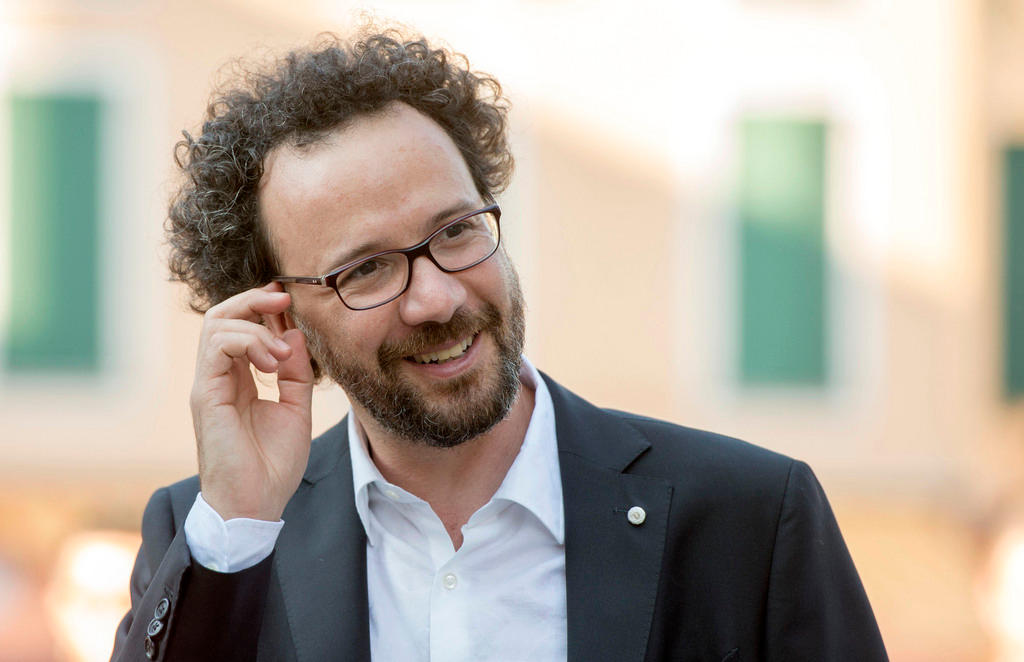
As the lights, cameras and action get going at the Locarno Festival, outgoing artistic director Carlo Chatrian discusses his final line-up and some of the past and future challenges facing Switzerland’s most important film event.
He also addresses the perceived lack of stars in LocarnoExternal link and explains why the ten-day festival, which started on Wednesday, has dropped “film” from its name.
swissinfo.ch: This year’s festival opens on the Piazza Grande with “Les Beaux Esprits” (Team Spirit) by Vianney Lebasque and closes with “I Feel Good” by Benoît Delépine. Do these titles reflect your personal emotional state?
Carlo Chatrian: (Laughs) It’s not that profound. We just wanted to have comedies in prominent positions at the beginning and the end. And it was very easy to do, because we liked these films despite the fact that they are very different; they provide an appropriate frame for the Piazza section. If we really want to make a joke out of the title of the concluding film, all I would say is “I feel good now, tomorrow and the day after tomorrow”. I’m happy here in Locarno, but hopefully I will also be happy tomorrow and the day after.
swissinfo.ch: In general, the emphasis this year is on showing entertaining and light films on the Piazza. Should we see this as a sign that the public doesn’t want heavy fare?
C.C.: After the 70th edition of the festival in 2017, we did indeed want a lighter programme. The retrospective of Leo McCarey’s filmsExternal link reflects that. And comedies have a wonderful effect in that they make the audience on the Piazza Grande laugh together.
swissinfo.ch: Shared laughter as therapy?
C.C.: Yes, something like that. But this is not about laughing to forget the world. Films such as Spike Lee’s racism satire “BlacKkKlansman” bring us to sources of conflict like racism. So these are important issues, but they come with a lighter packaging.
swissinfo.ch: As well as the Piazza Grande, the international competition also attracts attention. Which section is harder to programme?
C.C.: These two sections require different considerations. In the Piazza Grande section, we must not only find the right films but also the right people to accompany them. We are, after all, staging full-scale events over 11 evenings. It’s a bit like the Colombian film “Pájaros de verano” (Birds of Passage), which takes us on a journey across various continents. In the competition section, on the other hand, it’s not easy to find a balance between young and experienced directors.
swissinfo.ch: Among the films in competition is the Argentinian entry “La Flor” (The Flower) by Mariano Llinás, which lasts almost 14 hours. Is this a provocation?
C.C.: No, but it is a challenge for the audience and the jury. We view it as a unique film in the history of cinema – a huge homage to cinema. Films often reveal a certain anxiety to tell stories, but this draws from unlimited resources. Let’s wait and see what the reactions are. It’s definitely possible to see the film in parts.
swissinfo.ch: A film like this would never get commercial distribution, as is the case with most festival films. Does Locarno have a problem in this respect?
C.C.: This is a matter for debate time and again. But if we were to look at how often films in competition in the 1960s ended up with distributors, the result wouldn’t be very different. Festivals are places for discoveries, places for the avant-garde. That includes overlong films. And sometimes such films do end up in cinemas – look at “Heimat” by Edgar Reitz, for example. What’s more, new gadgets like smartphones offer new ways to see such films. We should be constantly open to this.
‘Festivals are places for discoveries, places for the avant-garde’
swissinfo.ch: But we can’t ignore the fact that the Pardo d’oro, the main prize at Locarno, doesn’t have the same international cachet as, for example, Berlin’s Golden Bear or the Palme d’or in Cannes. Why not?
C.C.: That is generally true. Locarno winners have not gone on to become commercial successes in recent years. But there are always positive examples. In my first year at the festival, Brie Larson won the best actress award; three years later, she won an Oscar. Or the film “As boas maneiras” (Good Manners) by Juliana Rojas and Marco Dutra, which won a prize in 2017 and is still showing in Brazilian cinemas.
swissinfo.ch: Cinemas are in crisis, but festivals are in vogue. Locarno is no longer just about films – social questions are discussed and the festival organises parties too. The name has changed from Locarno Film Festival to Locarno Festival. Is it no longer enough just to show films?
C.C.: I don’t see it like that. A film is a social event, and that remains the case. Locarno Festival is a short title, but everyone knows that the focus is on film. Everything else is a sideshow. The Piazza Grande only becomes a cinema under the stars during the festival.
swissinfo.ch: What has been the most memorable or perhaps most difficult moment of your tenure so far?
C.C.: Many people will perhaps think of all the discussions and controversial debates – for example in 2014 about whether Roman Polanski should attend. But in all honesty, the most difficult moment for me came before my first festival had even begun. In January 2013, I travelled to St Petersburg to invite the director Aleksandr Sokurov to attend an event before “L’immagine e la parola” [the festival’s springtime event]. Meeting him was a massive hurdle for me, like a big roadblock that I had to get over, but the first evening on stage at the Piazza Grande was also not easy.
swissinfo.ch: The glamour of the Locarno Festival has also been an issue for many years: sometimes there are too few stars, sometimes too many. Does this discussion irritate you?
C.C.: No. I leave this discussion to the media. We have managed to get some big names to Locarno. For me personally, the presence of the director Michael Cimino in 2016 was the most moving.
Carlo Chatrian
Carlo Chatrian was born in Turin, Italy, in 1971. After studying literature and philosophy at the University of Turin, he specialised in journalism and communications.
Since the early 1990s, he has written regularly for specialist film magazines. He is the editor of several books and has produced a range of monographs. He is a married father of three and lives in Aostatal in Italy, when he isn’t travelling.
Chatrian began working with the Locarno Film Festival in 2002. From 2006 to 2009 he was a member of the selection committee. He was also responsible for several retrospectives. He took up his post as artistic director of the festival on November 1, 2012.
Described by the Neue Zürcher Zeitung as a “full-blooded cinema buff,” Chatrian has been appointed artistic director of the Berlin Film Festival. He succeeds Dieter Kosslick, whose last festival runs from February 7 to February 17, 2019.
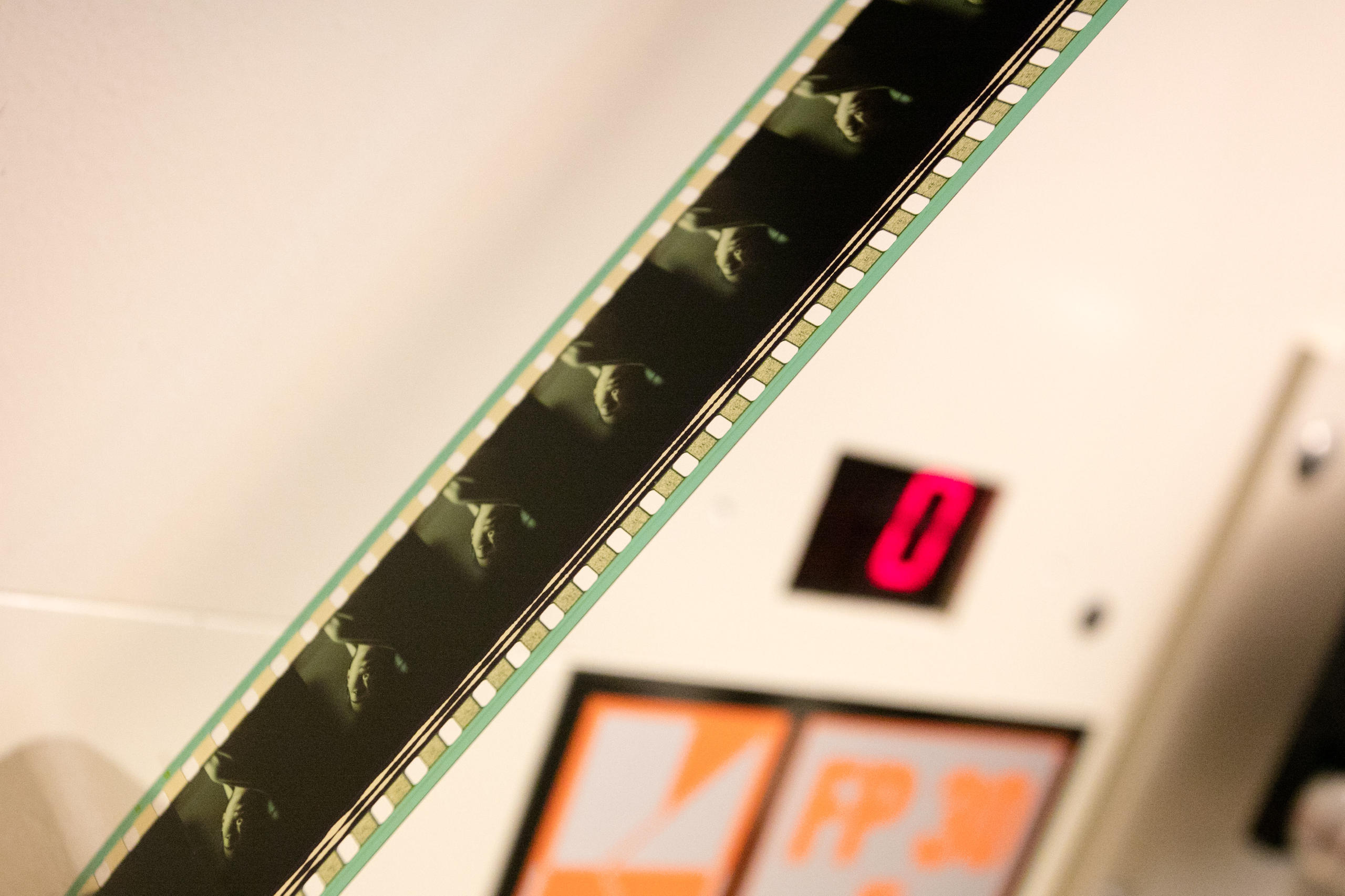
More
Dear old cinema
(Translated from German by Catherine Hickley)

In compliance with the JTI standards
More: SWI swissinfo.ch certified by the Journalism Trust Initiative
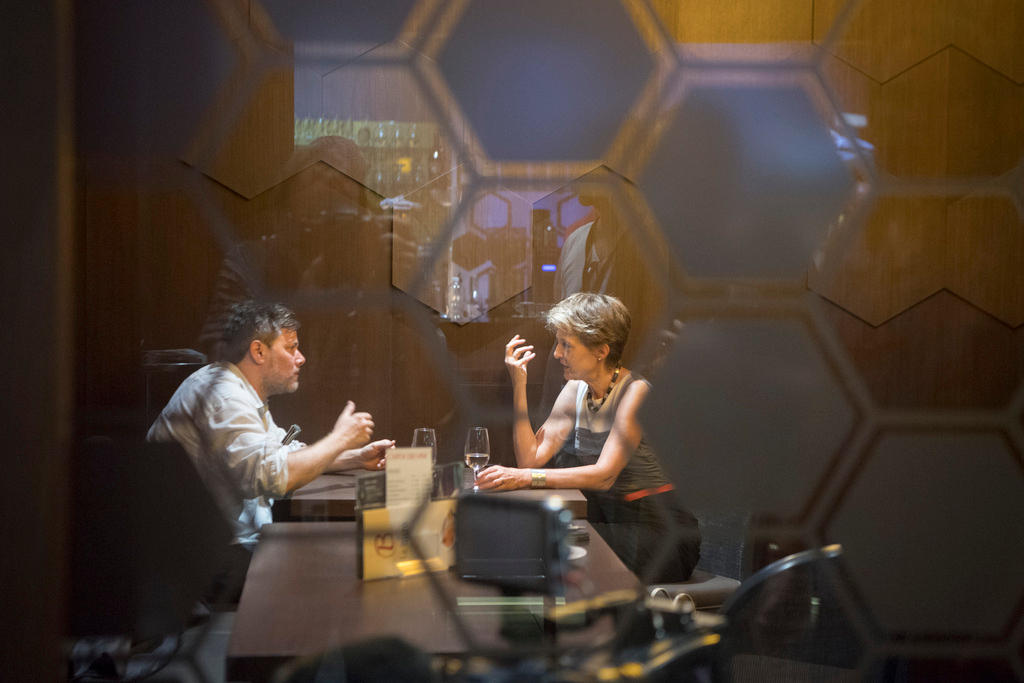
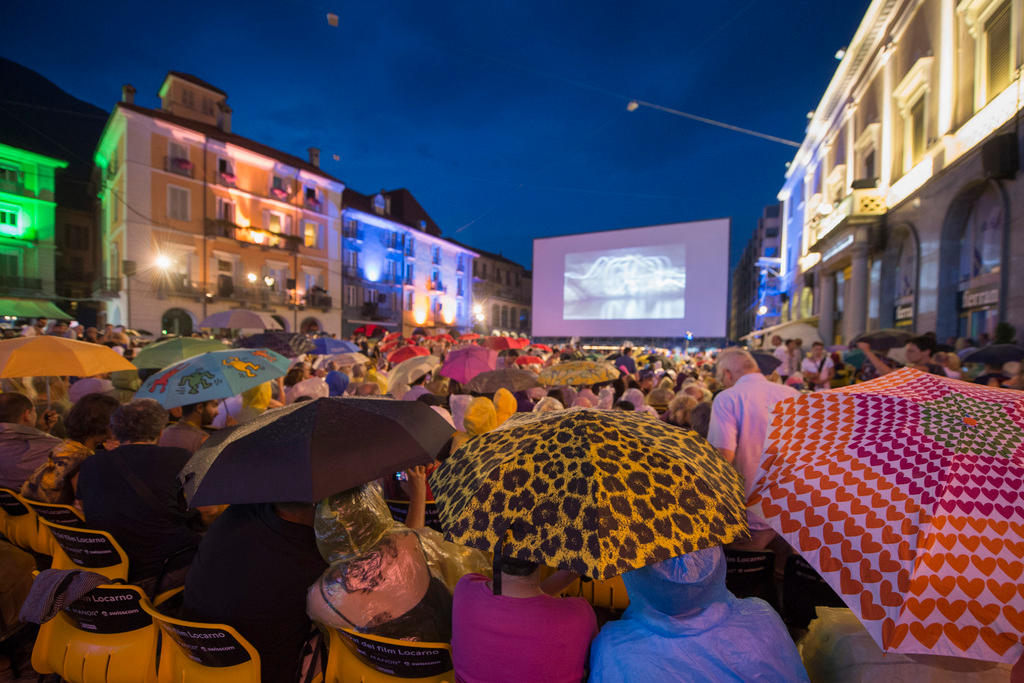
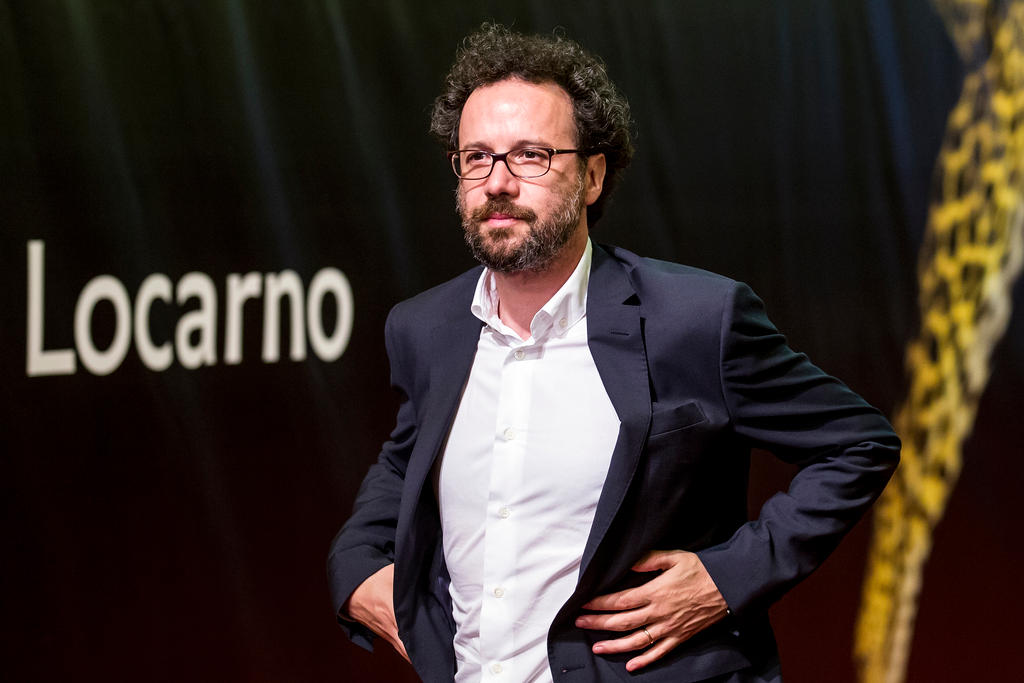
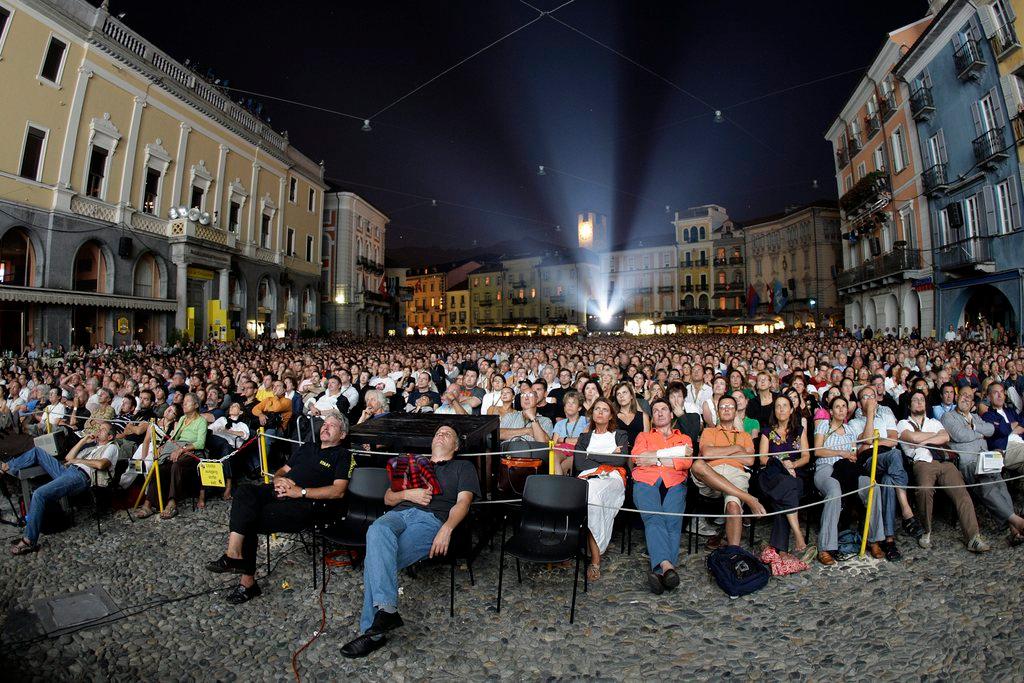


You can find an overview of ongoing debates with our journalists here. Please join us!
If you want to start a conversation about a topic raised in this article or want to report factual errors, email us at english@swissinfo.ch.